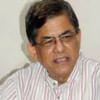Saarc Youth Action Plan finalised
Recognising the important role youths can play in the region, the South Asian countries have decided to finalise a SAARC Youth Charter and Action Plan in the upcoming Council of Ministers meeting in Nepal.
Foreign ministry sources said the foreign ministers of the eight SAARC countries will ink the “Youth Charter and Action Plan” to guide regional cooperation in this area, covering a comprehensive range of issues related to youths.
The South Asian Association for Regional Cooperation (SAARC) Council of Ministers is scheduled to sit in the Nepalese city of Pokhara on March 17.
Ahead of the 37th session of the council, the cabinet of Bangladesh is going to give its nod at Monday's meeting with Prime Minister Sheikh Hasina in the chair.
Foreign Minister AH Mahmood Ali would lead a Bangladesh delegation at the inter-summit, also known as SAARC Council of Ministers, which is comprised of the foreign ministers of the member states.
The other members have also decided to approve the Youth Charter in their respective countries' cabinets before the meet.
Diplomatic sources said the Youth Charter would also provide a conducive and positive environment of future activities and programmes for youths in the region, including youth exchanges and volunteerism.
The Youth Charter, which also aims at promoting health, well-being, rights and potentials of youths, also expects to use the knowledge of the youths in national development and provide employment opportunities for all utilising their skills productively.
The 16th SAARC Summit held on April 28-29, 2010 in Thimphu, Bhutan in its Silver Jubilee Declaration styled “Towards a Green and Happy South Asia” directed development of a SAARC Youth Action Plan.
Nepalese Prime Minister KP Sharma Oli is set to open the Council of Ministers meeting, which will also review a wide range of common issues including connectivity, development, trade and terrorism.
Nepal, the current chair of SAARC, hosted the 18th Summit on November 26-27, 2014.
The meeting will be preceded by meetings of SAARC Programming Committee and Standing Committee on March 14-15 and 16 respectively.
The inter-summit is generally held halfway between the two summits where the foreign ministers review progress made since the last summit and come up with necessary feedback to address the outstanding issues.
An ambitious 36-point Kathmandu Declaration was announced by the Kathmandu Summit that included regional cooperation in areas of trade, investment, migrant-labour issues as well as tackling terrorism, promoting linkages, connectivity and tourism along with sharing technologies.
However, the diplomatic sources said most of these decisions have not yet gained any shape.
The Motor Vehicle and Railway Service agreements, which were supposed to be finalised within three months of the Kathmandu summit, have yet to be decided as some member states say they have yet to clear their internal procedures.
A four-nation sub-regional group within the SAARC -- Bangladesh, Bhutan, India and Nepal (BBIN) -- has meanwhile signed a Motor Vehicle Agreement, which is expected to be fully operational anytime soon.
All issues mentioned in the Kathmandu Declaration will be reviewed thoroughly including the launch of a SAARC communications satellite, which was announced by Indian Prime Minister Narendra Modi as a gift from India to her neighbours.
The South Asian foreign ministers are also expected to discuss the date of the 19th SAARC Summit scheduled to be held in Pakistan.
Foreign ministry sources said Pakistan has proposed three alternative dates for the summit in November this year. The proposed dates are November 10-11, November 17-18 and November 24- 25.
Diplomatic sources said most of the member states have already conveyed their chosen date for the summit to Pakistan through the SAARC Secretariat.
However, Bangladesh has not yet informed Pakistan anything about it. Officials are expecting that Bangladesh would contact the SAARC Secretariat soon about the matter, said sources.

 For all latest news, follow The Daily Star's Google News channel.
For all latest news, follow The Daily Star's Google News channel. 








Comments